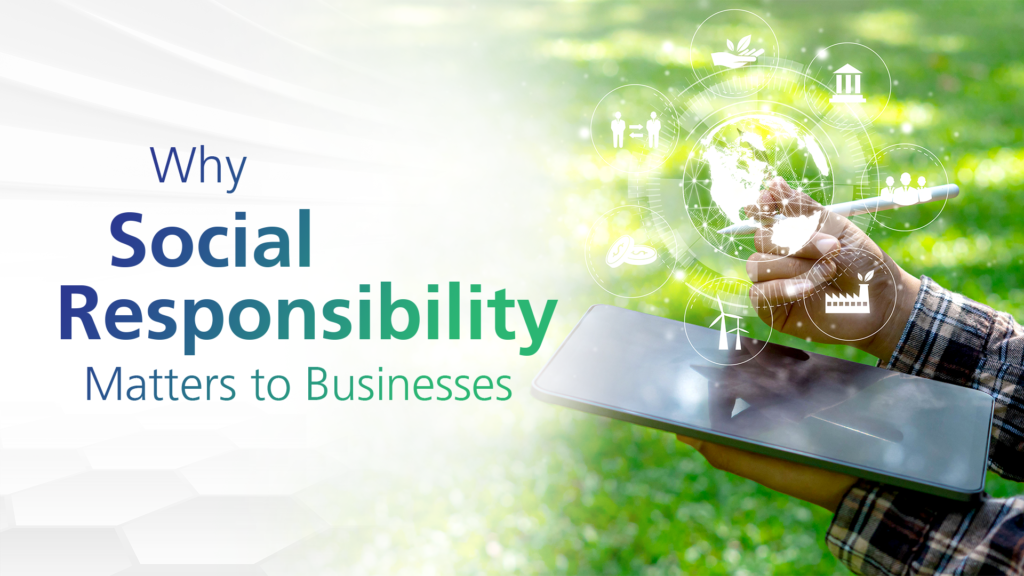Why Social Responsibility Matters to Businesses
Proving to the public that it is a force for good is a way for a business to stand out from the competition, improve brand value, and stay top-of-mind.

According to Deloitte’s 2021 Millennial and Gen Z Survey, the modern workforce places a higher value on culture, diversity, and high impact than financial perks. 49% of Gen Zers and 44% of Millennials base their decisions on the kind of job and company they would join on their own ethics.
What are the Benefits of Corporate Social Responsibility
CSR has numerous advantages for a business.
- Raising brand’s perception. Customers or clients are more likely to react favorably when they find proof that a company is socially responsible.
- A rise in staff morale. Companies that put effort and money into ethical and socially responsible activities tend to have higher morale.
- Attracting investors and partners. Potential investors are provided with security by a business that is prepared to make long-term investments in policies and upgrades.
How Can Businesses Practice CSR?
There are 4 pillars of corporate responsibility that your business can leverage on to initiate CSR strategy
- Environmental social responsibility. Environmental responsibility refers to the organization’s commitment to sustainability and environmentally friendly operations.
- Ethical/human rights social responsibility. Ethical responsibility refers to a company’s commitment to operate their business in an ethical manner that upholds human rights principles, such as fair treatment of all stakeholders, fair trade practices and equal pay.
- Philanthropic corporate responsibility. Philanthropic responsibility refers to a corporation’s aims, goals and objectives for actively bettering society as a whole. One huge aspect of corporate philanthropy is donating money from company earnings to worthy causes within the local community — often in the form of a trust or foundation.
- Economic corporate responsibility. When a business is acting with economic responsibility in mind, it is making financial decisions that prioritize doing good, not just making more money. This means that this type of CSR is intertwined with the other types above.
Some common examples of economic responsibility include investing in alternative energy sources, putting more money into education programs and funding local charities as a way of bolstering their mission.
With the rooftop solar power solution, VSSES is proud to be able to accompany enterprises to boost their CSR performance since solar energy is regarded as green because it uses a natural resource that can’t run out and emit almost zero CO2 emissions.
Rooftop solar adoption can also help businesses reduce their monthly electric bills. Through the partnership with an expert investor cum developer like VSSES you needn’t spend any penny on upfront investment or operation & maintenance work while enjoying a lower charge for the consumed energy. For example, with a 1 MWp rooftop solar system invested by VSSES in 25 years of contract duration, your business can save up to 25 billion dongs.
Contact VSSES now to enjoy clean energy and boost your CSR performance.
Hotline: 0274.730.7999
Email: contactus@vsses.com



